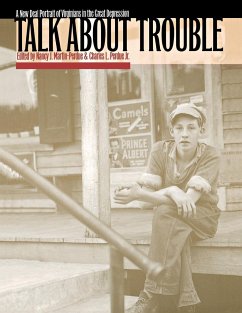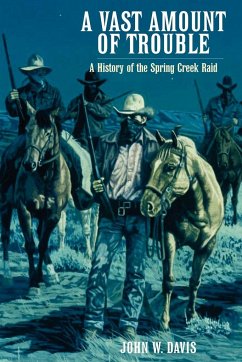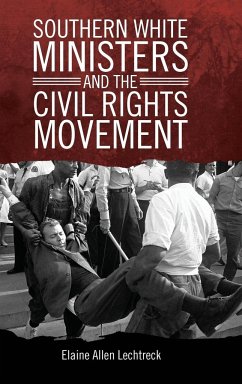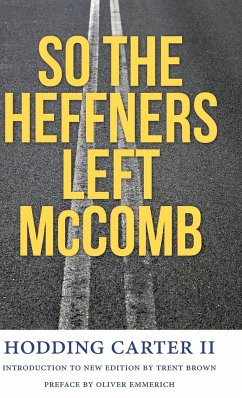
Trouble in Goshen
Plain Folk, Roosevelt, Jesus, and Marx in the Great Depression South
Versandkostenfrei!
Versandfertig in 1-2 Wochen
62,99 €
inkl. MwSt.

PAYBACK Punkte
31 °P sammeln!
The Great Depression emboldened Americans to tolerate radical experimentation in search of solutions to economic problems. Amongst the thorniest of those problems was that of Southern poverty; indeed, FDR claimed in 1933 that Southern rural poverty was the nation's "number one economic problem." In Trouble in Goshen Fred C. Smith focuses on three communities designed and implemented to solve that problem. This book examines the economic and social theories - and their histories - that resulted in the creation and operation of the most aggressive and radical experimentation in the United States...
The Great Depression emboldened Americans to tolerate radical experimentation in search of solutions to economic problems. Amongst the thorniest of those problems was that of Southern poverty; indeed, FDR claimed in 1933 that Southern rural poverty was the nation's "number one economic problem." In Trouble in Goshen Fred C. Smith focuses on three communities designed and implemented to solve that problem. This book examines the economic and social theories - and their histories - that resulted in the creation and operation of the most aggressive and radical experimentation in the United States. Trouble in Goshen tells the story of three communitarian experiments, the administrative details thereof, and the struggles, actions, and reactions of the clients of The Tupelo Homesteads, Dyess Colony, and Delta Cooperative Farm. The Tupelo (Mississippi) Homesteads were created under the aegis of the tiny Division of Subsistence Homesteads, a short-lived, "first New Deal" agency. Dyess (Arkansas) Colony was the largest of the Resettlement Administration's efforts to conjure failed farmers into Jeffersonian yeoman farmers. The third community, The Delta (Mississippi) Cooperative Farm, a product of the active cooperation between the Socialist Party of America and a cadre of liberal churchmen led by Reinhold Niebuhr, attempted to weave the piety, passion, propaganda and theory of Jesus and Marx into strong economic and social cables that would lift the failed sharecroppers of the bi-racial cooperative into owners of the means of production. The accoutrements, facilities, and management styles of the projects reveal a clearly delineated class-order among the poor. Indeed, Trouble in Goshen demonstrates the class-conscious angst that enveloped three distinct levels of poverty and the struggles of plain folk to preserve their tenuous status and to avoid overt peasantry.














